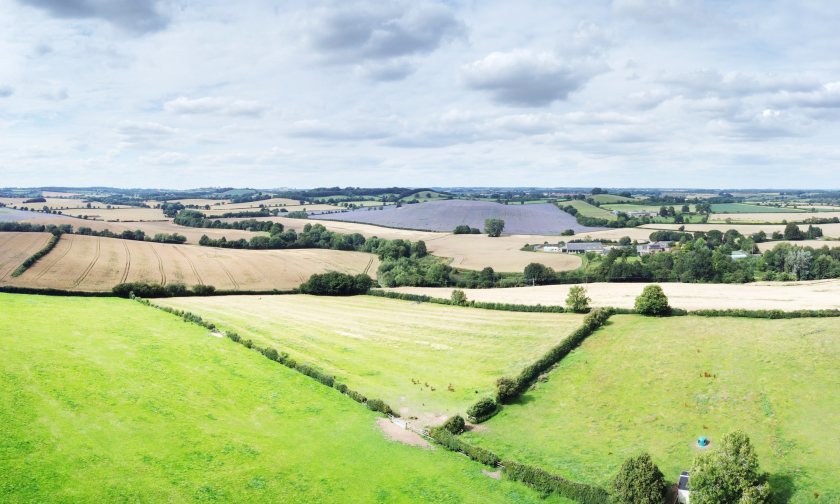
The farmland market has slipped further into limbo, with prices dipping and sales stalling as landowners await the government’s next budget and looming inheritance tax reforms.
The Knight Frank Farmland Index shows the average price of bare agricultural land in England and Wales fell 1.6% in the third quarter of 2025 to £8,719 per acre.
That leaves values 6.8% lower than a year ago, though still up 24.5% over five years and 210% higher than two decades ago.
Market activity has slowed almost to a standstill. By September’s end, only about 90,000 acres of farmland had been publicly advertised this year — just 10% more than in 2024. Few transactions are being completed as buyers and sellers wait for clarity on fiscal policy.
“We largely find ourselves pretty much in the same place as this time last year, waiting for a budget,” said Will Matthews, head of farms at Knight Frank.
“Everyone’s hoping things can’t get any worse than last year, but a growing number are starting to worry that they possibly could.”
Last year’s announcement by Chancellor Rachel Reeves that agricultural and business property relief will be reformed from April 2026 has rattled the sector.
Unless reversed, the changes will leave many farm and estate heirs facing steep IHT bills at a time when profitability is already under strain.
“I know that land agents and lawyers are all pretty busy trying to get their clients’ ownership structures improved or passed on, ready for when the new Inheritance Tax reforms kick in next April,” Matthews added.
“But I’ve still not had one phone call from somebody who even wants us to value their farm because of IHT.”
The timing of Labour’s second autumn budget on 26 November has only heightened nerves. With the UK’s deficit widening, landowners fear more tightening ahead.
Matthews noted that with opposition parties pledging to reverse the IHT changes if elected, some farmers may simply wait out the current government. “I think a lot of farmers and estate owners will be hoping they can outlast the new tax,” he said.
The greater uncertainty may lie in how the next generation responds. Matthews warned that if successors decide “a future in farming, or indeed the UK, is not for them, there could start to be more sales next year, which will have an impact on average values.”
Despite the subdued mood, Knight Frank points out that current prices remain resilient compared with historic levels. Average values of £8,719/acre are well above the £7,000 seen in 2020. Strong demand for high-quality, well-located arable and pasture land continues to support localised bidding.
For the wider economy, shifts in farmland values matter beyond the farming community. Land is both a core asset for food production and a draw for investors, meaning volatility in the market can ripple out into rural jobs, food security and long-term investment in the countryside.
Any further price softening is expected to be short-lived. “Farmland has historically followed a pattern of sharp price rises followed by more gradual downturns,” Matthews said.
“There is a strong possibility that the IHT changes could be reversed after the next General Election, by which time farmers may well be feeling more confident again.”
The Knight Frank Farmland Index has tracked bare agricultural land values since 1944.
